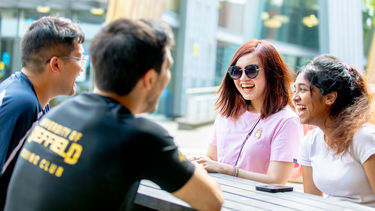Clinical Academia Training at CURE
Clinical academic training allows doctors and dentists to learn research skills and undertake protected periods of research during their clinical training.
It consists of a dedicated career pathway which aims to develop senior academic clinicians, providing excellent medical care and leading research projects for the benefit of patients.
The clinical academic training pathway is shown below:
It allows entry at several levels and trainees can join:
- As an academic foundation trainee. Doctors will benefit from a protected 4 month research block where they receive academic training and ‘taste’ of research.
- As an academic clinical fellow at entry into speciality training at ST1 (for “coupled” specialities) and at ST3 (for both “uncoupled” and “coupled” specialities).
- As a senior trainee in the final speciality training years and after completing a PhD/ research MD as an academic clinical lecturer
- As a trainee taking time from their clinical training programme to undertake a clinical research fellowship or clinical lectureship in the University
- The ultimate aim is to become an international research expert and leader.
What opportunities are there for clinical academic training at CURE?
The Centre for Urgent and Emergency Care Research (CURE) offers clinical academic training at all levels:
- Medical student modules alongside established projects
- One-year intercalated BMedSci degrees
- NIHR academic foundation year attachments
- NIHR academic clinical fellow (ST1-3) posts
- Full-time MD/PhD research fellowships
- NIHR Clinical lecturer posts
Medical student modules and intercalated degree projects are organised by the Medical School. Available NIHR foundation posts, academic clinical fellowships and clinical lectureships are advertised through the Faculty of Medicine.
Why CURE?
CURE researchers undertake health service research into the organisation and delivery of urgent and emergency care, and work with the Clinical Trials Unit and Section of Health Economics and Decision Science to undertake health technology assessment relevant to urgent and emergency care. Research interests are wide ranging, please take a moment to browse recent projects.
CURE is a leading centre for urgent and emergency care research. It is a research group based in the School of Health and Related Research (ScHARR), a nationally and internationally renowned academic unit. We are linked with the Emergency Department of the Northern General Hospital ∫˘¬´”∞“µ Teaching Hospitals Trust, Yorkshire Ambulance Service and a number of other organisations. Joining clinical academic training at CURE will have the following benefits:
- Friendly and collegiate research groups
- Track record for delivering projects successfully
- Leading international experts
- Health economic, clinical trial and statistics support from ScHARR
- Access to wide ranging research training
Who are the clinical academic trainees currently working in CURE?
Current clinical academic trainees are:
- Gordon Fuller, a NIHR Clinical Lecturer in Emergency Medicine. His research include major trauma, including severe traumatic brain injury, sports related concussion, venous thromboembolism, and evaluation of interventions and systems in emergency care settings.
- Rachel Evans, is a NIHR Academic Clinical Fellow. Her research interests include anticoagulation in head injury.
- Fiona Sampson, a NIHR Doctoral Research fellow. Her research interests are evaluating health care systems, patient perspectives of health services and the use of mixed methods in research.
Where can I find out further information?
Gordon Fuller is the CURE lead for clinical academic training. Please feel free to contact him on g.fuller@sheffield.ac.uk to discuss opportunities at CURE further.

International scholarships
We offer a generous package of financial support for international students, including undergraduate and postgraduate taught scholarships worth £10,000 towards the annual tuition fee.
Applications are open for existing offer holders for programmes starting in autumn 2025.

